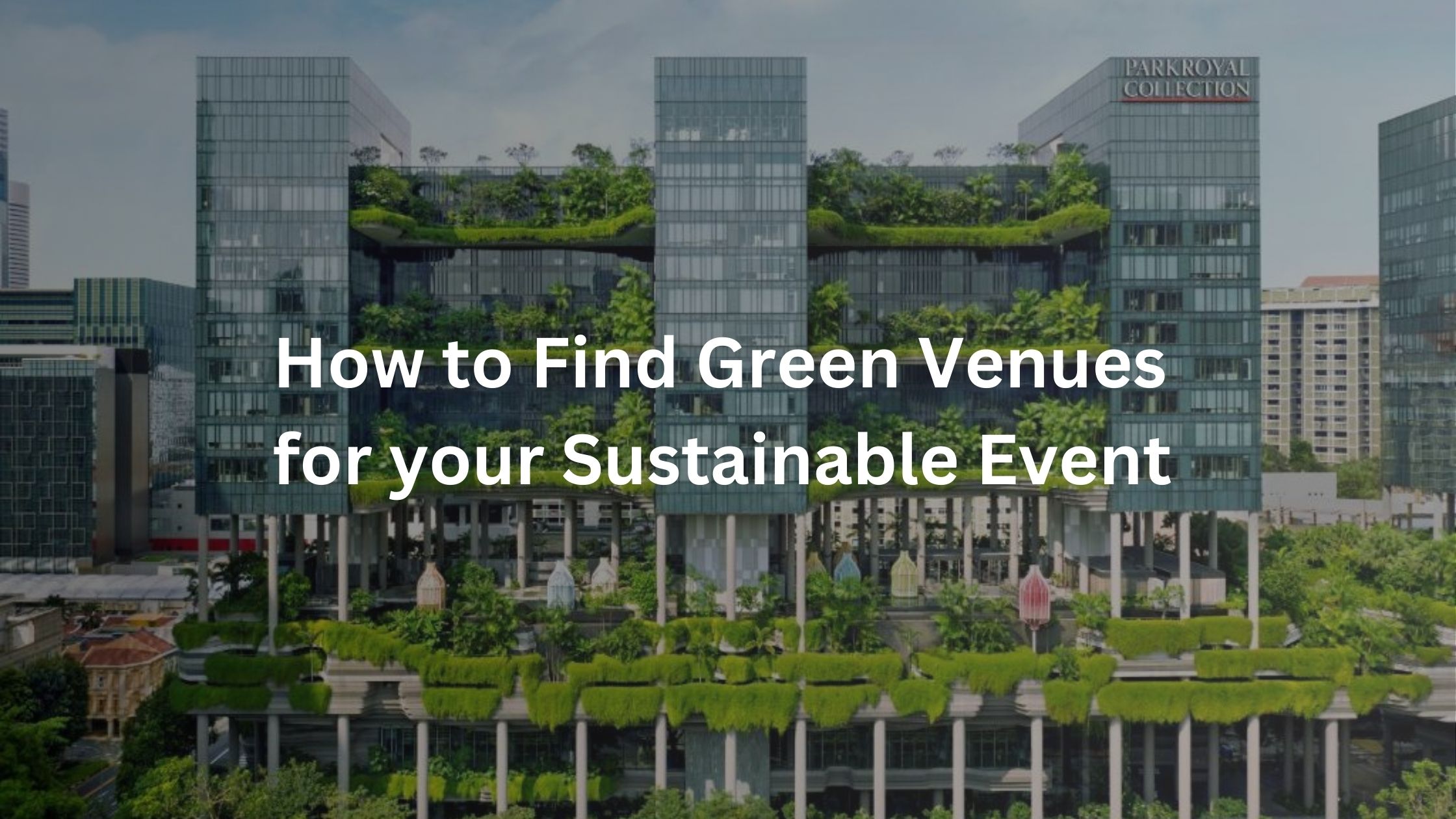
How to find Green Venues for your Sustainable Event
In today’s environmentally conscious world, hosting sustainable events has become increasingly important.
When we talk about event management, sustainability involves making socially and environmentally responsible decisions to ensure events are hosted conscientiously. (Shukla Jaykumar Rashminbhai, 2024)
And one of the most crucial decisions when organising events is choosing the right venue that meets our sustainability goals.
Green event venues prioritise eco-friendly practices, minimise their environmental impact, and contribute positively to their communities. For those who genuinely value sustainability, information about the business environmental contribution should be readily available on their website or easily accessible upon inquiry.
As a sustainable event management company, our team at On Purpose Events have prepared an outline of key factors to consider when searching for green venues for sustainable events, ensuring that your next gathering is not only memorable but also environmentally responsible.
We’ve added questions for you to ask the venue under each section to make the process as smooth as possible for you.
Location and Accessibility
Selecting a green venue starts with considering its location and accessibility. Opt for venues that are easily accessible by public transportation, cycle paths, or walking to reduce attendees’ reliance on cars and minimise their collective carbon emissions.
Choose locations that are centrally located to the majority of attendees and convenient for participants, reducing their travel time and therefore environmental impact.
1. How accessible is the venue by public transportation, and what alternative transportation options are available nearby?
2. Does the venue provide facilities for cyclists, such as bike racks or designated parking areas?
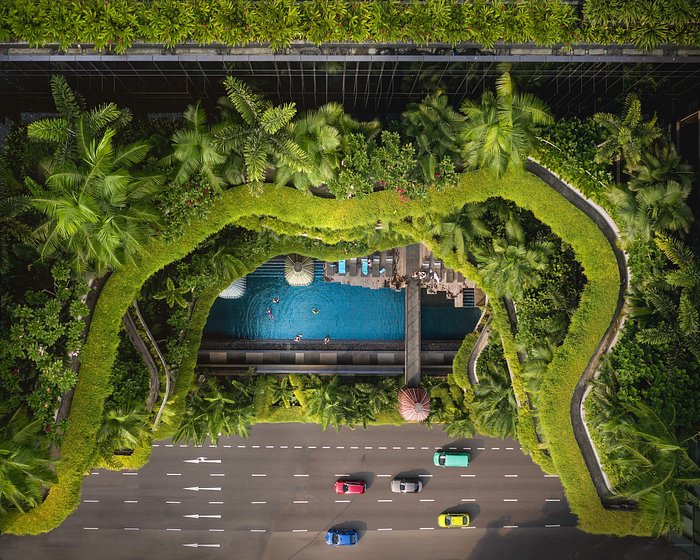
Sustainable Design and Construction
Look for venues that have prioritised sustainable design and construction practices during their initial build. Green buildings utilise environmentally friendly materials, energy-efficient technologies, and passive design principles to reduce energy consumption and minimise environmental impact.
1. What sustainable materials were used in the construction of the venue?
2. How does the venue incorporate passive design principles to reduce energy consumption?
Waste Management and Recycling
Green event venues should have and be able to communicate their robust waste management and recycling programs. Seek venues that prioritise waste reduction, recycling, and composting and minimise single-use plastics and promote the use of reusable or compostable materials. Ensure that the venue provides clearly labeled recycling bins and composting facilities, encouraging attendees to dispose of waste responsibly.
1. Can you provide details about the venue’s waste management and recycling programs?
2. Are recycling bins and composting facilities readily available and clearly labeled throughout the venue?
Sustainable Catering Options
When selecting a green venue, consider its catering options and food offerings. Opt for venues that offer or partner with local, organic, and sustainably sourced food vendors. Choose menus that feature seasonal, plant-based, and locally sourced ingredients to minimise the carbon footprint associated with food production and transportation. It is important that caterers evaulate means of waste reduction, minimise packaging and use reusable or compostable servingware.
1. Can you describe the venue’s approach to sustainable catering, including sourcing and menu options?
2. Does the venue offer or partner with local, organic, and sustainably sourced food vendors?
Community Engagement and Social Responsibility
Green venues should be actively engaged with their local communities and committed to social responsibility. Look for venues that support local initiatives, charities, and sustainability projects. Choose venues that give back to their communities through volunteer programs, charitable donations, or partnerships with local organisations. It is important to choose a venue that prioritises diversity, equity, and inclusion, and is committed to creating positive social impact for their workforce.
1. What initiatives does the venue undertake to support local communities, charities, and sustainability projects?
2. How does the venue promote diversity, equity, and inclusion within its workforce and community engagement efforts?
Environmental Certifications and Accreditations
Consider green event venues that have obtained environmental certifications and accreditations. Look for venues certified by recognised organisations relevant to your countries standards for sustainable event management. These certifications demonstrate a venue’s commitment to environmental stewardship, sustainability, and best practices in event management.
1. Has the venue obtained any environmental certifications or accreditations related to sustainable event management?
2. How does the venue ensure ongoing compliance with environmental regulations and standards?
Venue Values and Alignment
Seek out venues that share your values and priorities when it comes to sustainability. Look for venues that incorporate eco-conscious practices and demonstrate a commitment to environmental responsibility, but do so in a way which meets your unique sustainability needs or goals.
By selecting a venue with values that resonate with yours, you can ensure a meaningful alignment for your sustainable event creating a space where your concerns are heard and your specific needs are met.
1. What values and principles does the venue prioritise when it comes to sustainability and environmental responsibility?
2. How does the venue demonstrate its commitment to eco-conscious practices in alignment with our sustainability goals?
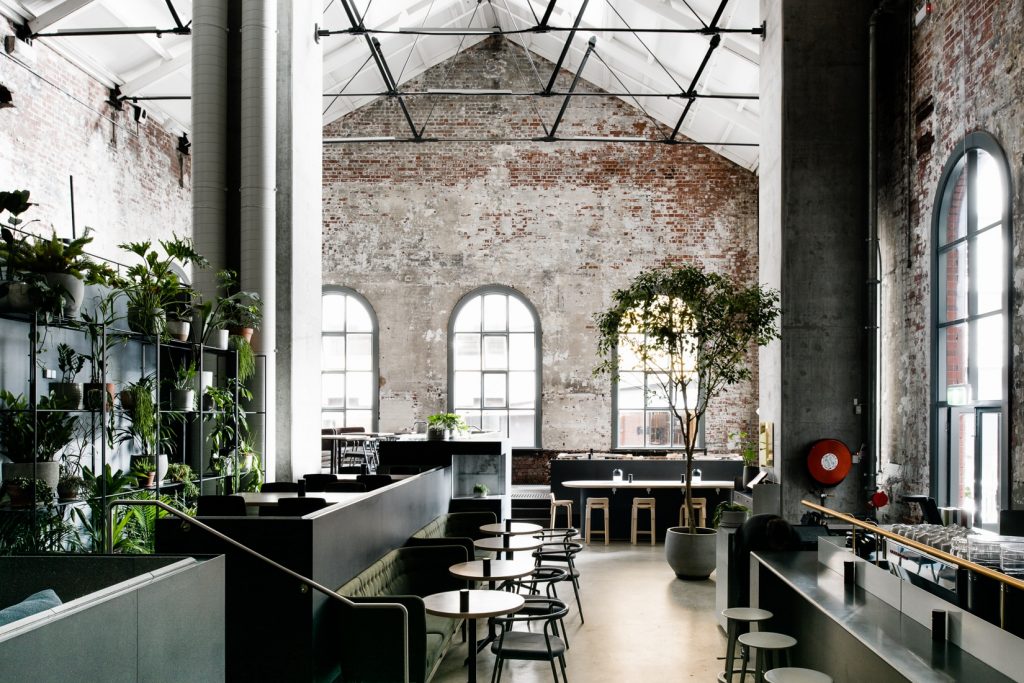
Nature in Indoor and Outdoor Spaces
Choose venues with green outdoor spaces, such as gardens or courtyards, for nature immersion and outdoor activities. Also, consider indoor spaces with plants and green walls. Incorporating indoor greenery into event spaces contributes to sustainability, improves air quality and the natural beauty enhances overall attendee experience. Ensure both indoor and outdoor natural spaces are accessible for attendee enjoyment, creating an eco-friendly event atmosphere.
1. Can you describe the indoor and outdoor green spaces available at the venue and are these accessible for attendee enjoyment during events?
2. Can you provide examples of how the venue maximises the use of natural elements to create an eco-friendly event atmosphere?
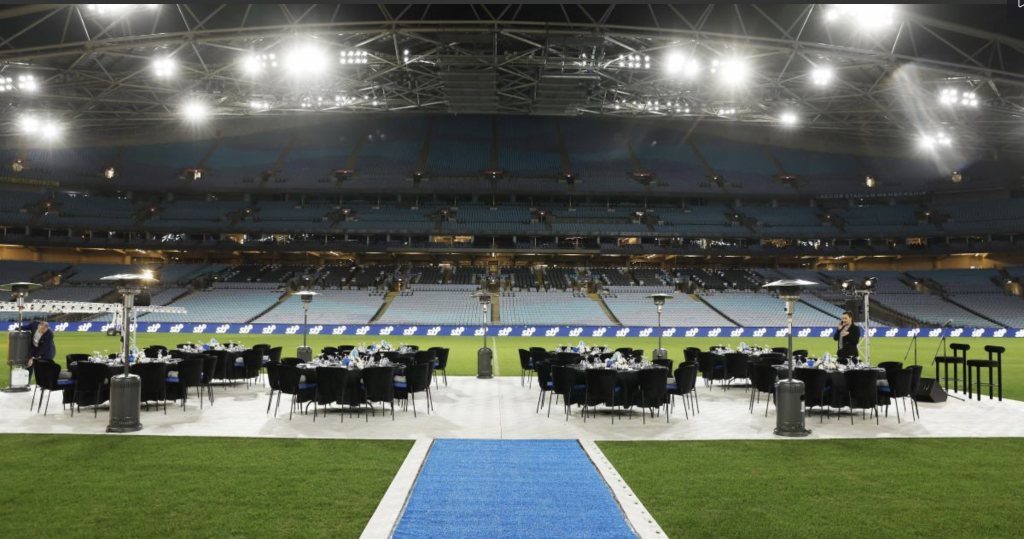
Innovation and Technology
Explore venues that leverage innovative technologies and sustainable practices, such as smart building systems, green roof installations, or water-saving irrigation systems. Enquire about the venue’s investment in sustainability research and development, and their willingness to implement modern day solutions to reduce environmental impact.
Venues excelling in sustainability may employ Energy Monitoring Systems for real-time tracking of energy consumption, integrate Renewable Energy Sources to power their operations sustainably, utilise Digital Event Management Platforms to streamline planning and reduce paper usage, or implement IoT-enabled Environmental Monitoring for optimising indoor environmental conditions and energy efficiency.
1. What innovative technologies does the venue leverage to reduce its environmental impact and promote sustainability?
2. Are there any specific technologies or systems in place for real-time tracking of energy consumption, integration of renewable energy sources, or environmental monitoring to optimise indoor conditions and energy efficiency?
Case Studies and Success Stories
Engaging with other event planners and companies that have used the venue can provide valuable insights into their commitment and tangible efforts towards sustainability. Requesting to connect with the last event planner allows you to gather firsthand insights, ensuring that all sustainability initiatives are being effectively implemented and maintained. This direct communication enables you to learn from others’ successes and challenges, facilitating informed decision-making and enhancing the sustainability of your own events.
1. Can you share any case studies or success stories of previous events held at the venue that showcased its commitment to sustainability?
2. Can we connect with previous event planners or companies that have used the venue to gather firsthand insights into its sustainability initiatives?
Water Conservation
Water conservation is another important aspect to consider when choosing a green venue. Seek venues that manage water efficiency through the use of low-flow fixtures, water-saving appliances, and efficient irrigation systems. Consider venues that harvest rainwater or utilise greywater recycling systems to reduce water consumption and minimise environmental impact. Ensure the venue provides refillable drinking water options without the use of single use plastic.
1. What measures has the venue implemented to improve water efficiency?
2. Are there any initiatives in place for rainwater harvesting or greywater recycling to further reduce water usage and environmental impact?
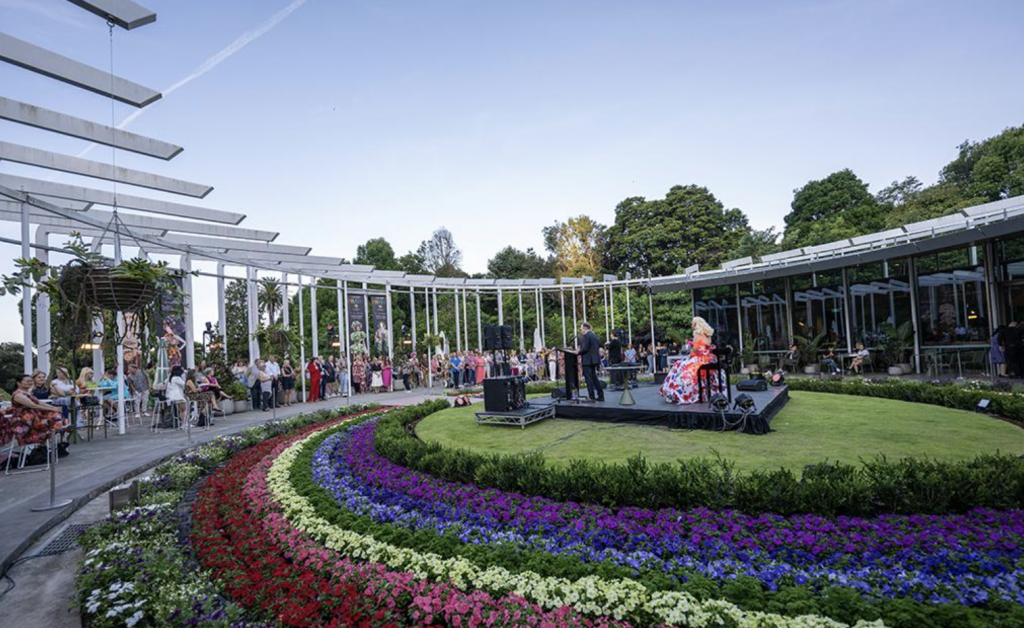
By selecting a green venue, event organisers align their actions with sustainability goals, promoting responsibility of resources and environmental conservation. It is another complexity to add to finding your perfect event venue but selecting a green venue is more than just a logistical decision; it’s a statement of values and a commitment to sustainability.
By considering the environment in your event planning, organisers can create meaningful experiences that not only leave a lasting impression but also contribute to a healthier planet and more sustainable future for generations to come.
The Calyx in the Royal Botanic Garden Sydney offers a unique conference setting, blending science, nature, and innovation. With a focus on sustainability, green practices, and boasting one of the largest green walls in the southern hemisphere, it’s ideal for small events.





